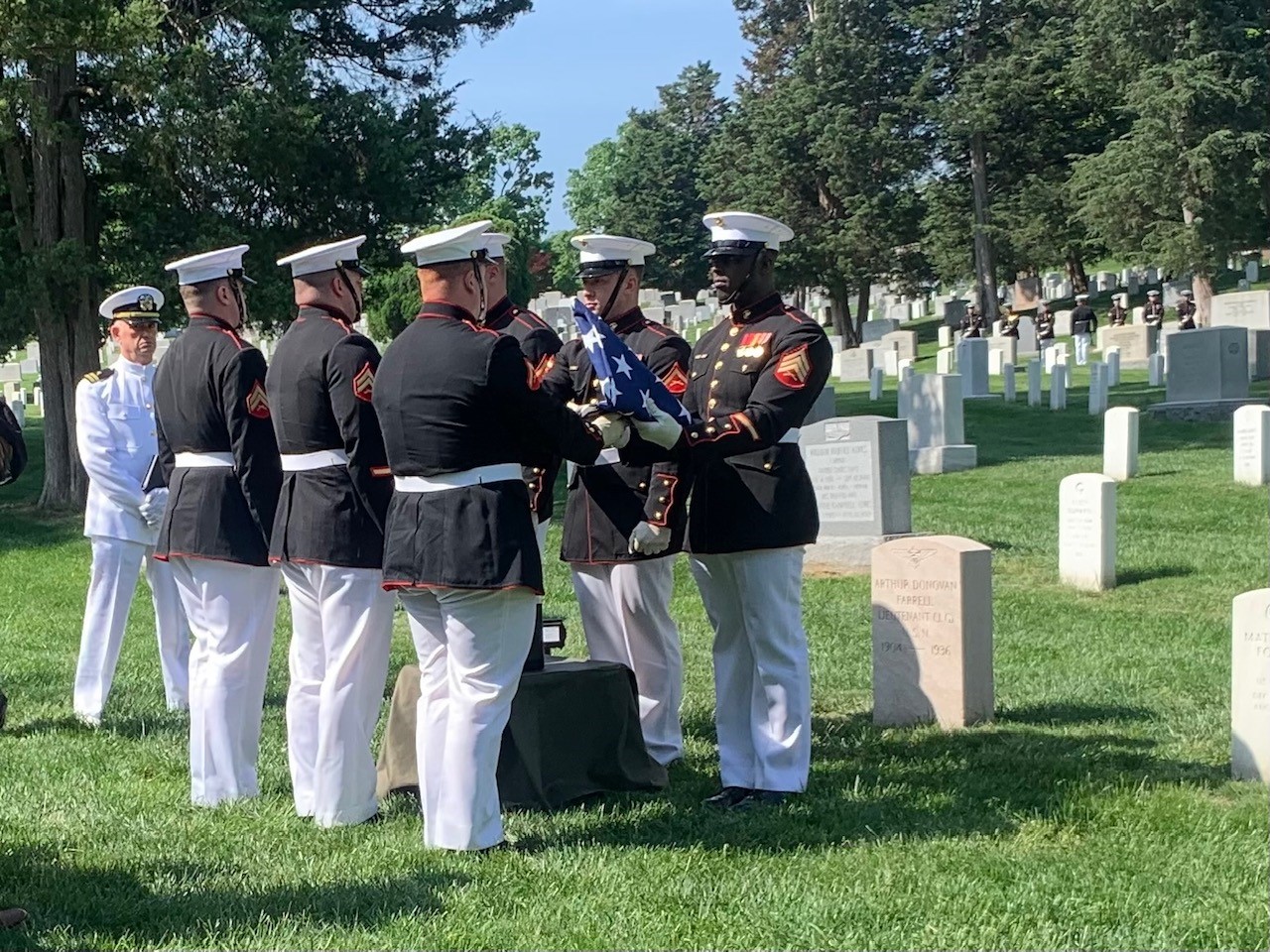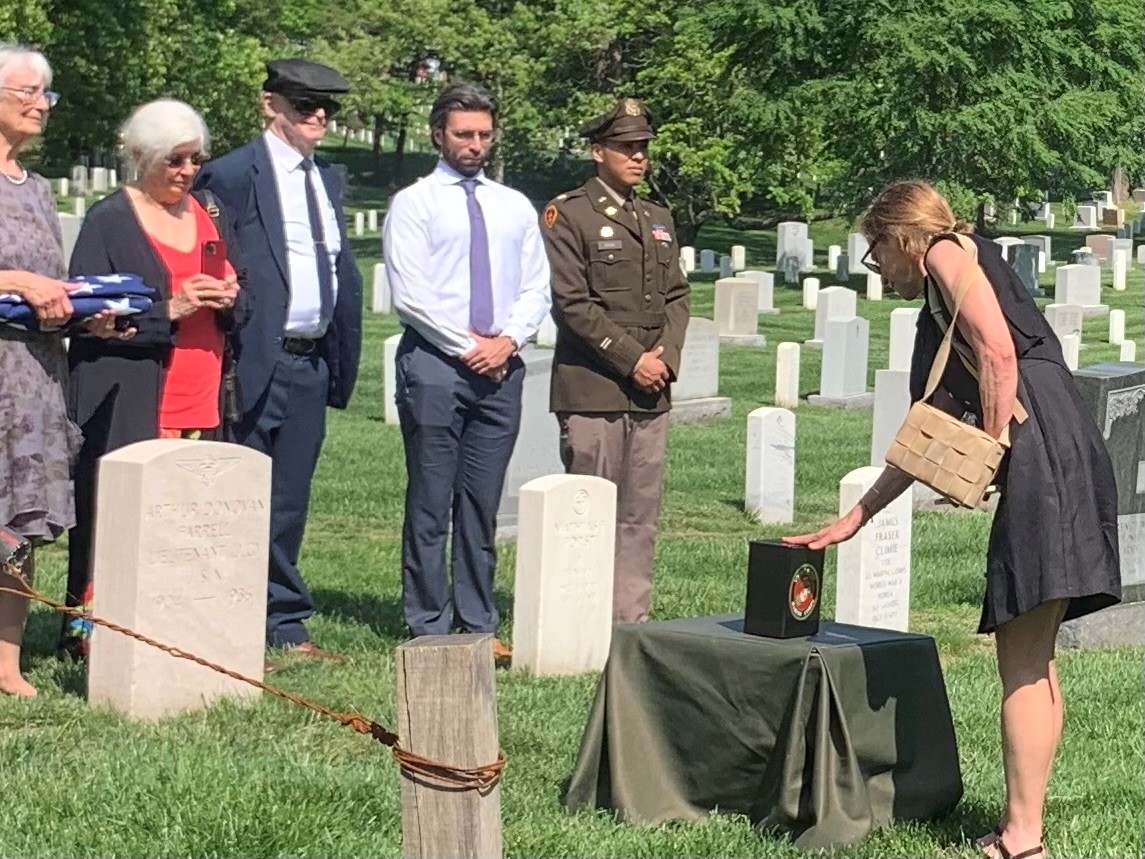
William Andreas Brown led a fascinating life in the United States Foreign Service, serving in posts around the globe that included appointments such as ambassador to Thailand in the 1980s and ambassador to Israel in the early 1990s. Yet he always identified with his service in the United States Marine Corps.
At Brown’s funeral service at Arlington National Cemetery on May 1, 2025, the seal of the United States Marine Corps was emblazoned on his urn in gold, black and white. “The Marine Corps was a transformational experience for him,” explained his son, Al. Brown received his Marine Corps commission after graduating from Harvard University in 1952 through a Navy ROTC program. He deployed to Korea as a 2nd lieutenant and served as a forward observer to an artillery unit. He lived with the frontline troops in a bunker, radioing in enemy positions to the artillery guns in the rear. The war, which had been going on for two years before Brown arrived, had entered its “stalemate” phase, with both sides trying to kill as many of the enemy as possible without much maneuvering.
Brown went on to serve as a captain in the Marine Corps Reserves and joined the Foreign Service in 1956. He served in Hong Kong, Taiwan, the Soviet Union, Thailand and Israel, becoming fluent in Chinese, Japanese, French, Greek, Russian and Hebrew. In 1972, he accompanied the first U.S. House of Representatives delegation to visit China after President Richard Nixon restored diplomatic relations.
Brown was serving as the ambassador to Israel during the 1991 Persian Gulf War, when Iraqi leader Saddam Hussein fired Scud missiles at Israel, aiming to draw Israel into the war. According to his son, Brown “took shelter in a bunker when the missiles were coming in,” and helped to persuade Israeli leaders not to enter the war.
Brown’s service in the Marine Corps inspired Al to join the Marine Corps ROTC program in college. When Al proudly told his father what he had done, Brown admitted that instead of joining the Navy out of college, he had joined the Marine Corps to spend more time with his wife, Al’s mother.
Years after his service in uniform, Brown still felt his connection to the Corps. While serving as the first American consul in Kuching, Malaysia, he instructed a Marine lance corporal to perform the flag raising and lowering every day in full dress uniform. He also organized the 50th, 51st and 52nd reunions of his officer class. As his son Al concluded, “He never forgot his friends and comrades he served with.”
